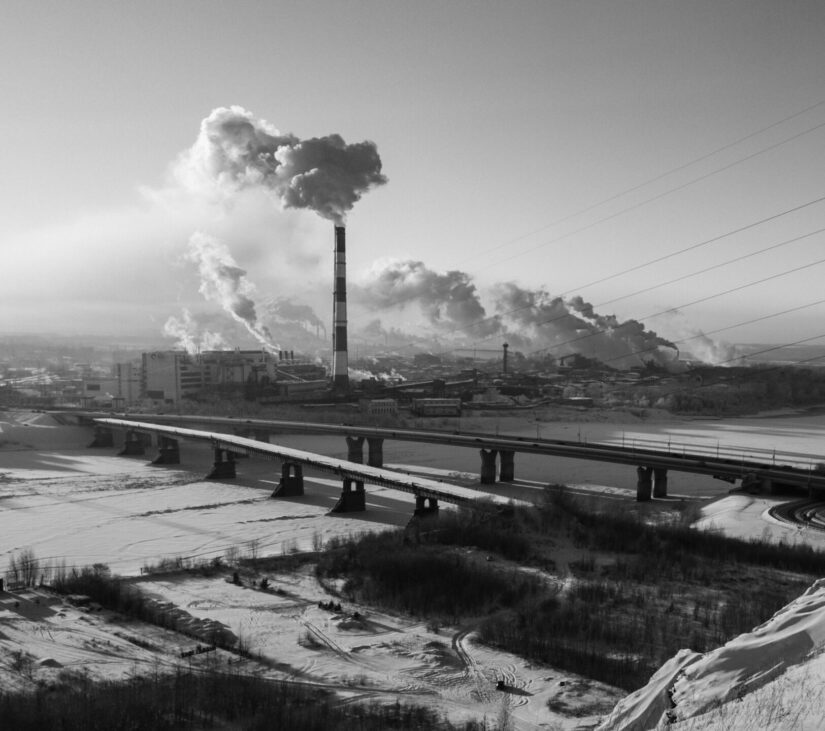The Problem
For many business sectors, climate action is largely voluntary, and it’s failing. While the number of corporations releasing “net zero” and “carbon neutrality” claims has grown exponentially since 2019, reports and complaints of greenwashing have also dramatically increased.
For too many businesses, it has been a case of business as usual, albeit with a cosmetic green sheen. Business targets have become characterised by poor emissions accounting, dependence on problematic carbon offsets, and vague plans for actual emissions reductions. Voluntary initiatives alone cannot solve this problem - governments and regulators must step in and compel companies to slash emissions in line with the Paris Agreement.
Offsetting Ambition
Many companies are turning to controversial carbon offsetting whilst not doing enough to reduce their actual emissions. Businesses are using offsets as a cheap and not so cheerful alternative to real climate action, when in practice they do not (fully) neutralise emissions, are in limited supply and pass the buck to others.
Creative Accounting
Not all of the emissions caused by businesses are included in their climate accounting. Data is regularly not published, and there is no standard way of calculating emissions, making it possible to conceal the true size of their carbon footprint. This makes greenwashing easy.
Zero Accountability
Most companies have no legal mandate to significantly tackle their carbon emissions. Business action is often governed by voluntary initiatives, which makes it hard to challenge misleading claims or to ensure action is as strong as possible.
The Watchlist
Who is the next in line to have their climate greenwashing exposed?
The Impact
Offsetting Ambition
Companies wear offsetting as a badge of honour, when in reality it should be a very last resort when all other options have been exhausted. Dependence on offsets maintains current emission levels and locks us into higher emissions in the future, delaying urgent climate action by vital years, even decades.
Crucially, many offset projects are not what they seem. They are either too short lived to permanently neutralise the emissions released by the company - with fires burning down or droughts killing forests, for example - or would have happened anyway without carbon market finance. The lack of market transparency is hugely problematic. It is very difficult to track which offsets have been purchased from where in the world, by whom and for what end. This murkiness enables misuse of offsets for greenwashing purposes.
Without proper action to reduce emissions, unnecessary offsetting is putting unrealistic demand on land we may need in future for other purposes. The recently released Land Gap report stated that more than half of the land needed for government offsets was currently being used for something else such as farming - this is before taking into account the additional pressures of business offsetting pledges. For example, the net zero pledges of just four of the world’s biggest energy companies would require planting trees across twice the size of the UK to deliver. This hunger for land could push food prices up by 80%.
Moreover, fears have grown amongst indigenous peoples and local communities that demand for offsets will increase land grabbing and human rights abuses. While voluntary carbon markets claim to be providing essential finance for nature conservation and to those on the ground that need it the most (which in optimal cases they do), there is virtually no evidence to track the amount of money that actually serves climate action and supports communities. Several investigations have shown brokers and intermediaries squeezing all the profit with very little of the money going to the land stewards.

Vague Targets and Creative Accounting
Consumers are being misled. Many businesses claim to have plans to reach net zero emissions, but when their targets are scrutinised the reality is that only a fraction of their true emissions are included. A report from the NewClimate Institute found that 25 of the world's biggest businesses claiming net zero, were only committed to reducing their real absolute emissions by 40% collectively, despite their grand public claims.
Scientists have issued a code red for the climate. With humanity already in the red on its carbon budget, we cannot afford to delay action. Yet many of the short-term details of how businesses plan to get to net zero are either missing or fall well short of the Paris Agreement.
In many cases, big brands are completely ignoring key sources of emissions in their calculations. For example, the FIFA World Cup in Qatar understated the construction-related emissions from most of its stadiums by eightfold.

Zero Accountability
For two decades, corporate climate action has been based on a company vaguely promising to do something in order to join a voluntary initiative and get some reputational credit. But these promises are largely not bound by laws and regulations. There is no binding mandate upon companies to publish their full greenhouse gas emissions data, let alone to slash their carbon footprint. There is no enforcement body in place that checks whether the numbers being given are true or not. There are not enough legal repercussions for bending the truth or giving false figures.
Corporations are joining initiatives and then being given a say in the strength of the rules they should abide by, akin to allowing pupils to mark their own homework but with planet-wide repercussions. Some consultancies verifying businesses as carbon neutral are in the pockets of those same businesses, having been paid to write their climate change strategies for them.
This complicated, opaque web of voluntary action could be delaying, not accelerating, climate action. Regulators must hold corporations accountable for their climate pledges and vague “carbon neutrality” or “net zero” claims must be banned.

A Blueprint for Combating Greenwashing
Governments
Wake up. Hold corporations accountable for their climate claims. End “net zero” and “carbon neutrality” claims over-reliant on false solutions, ambiguous targets and poor accounting.
Businesses
Step up. Strengthen your strategies in line with the science. Slash real emissions, end your reliance on offsets, be transparent about your full carbon footprint, and join the call for proper accountability through regulation.
The Evidence
-

EU to ban ‘climate neutral’ claims by 2026
Source: Financial Times
The EU will ban sweeping environmental claims such as “climate neutral” or “eco” by 2026 unless companies can prove the claim is accurate.…
Read On Financial Times
-

Nowhere left to hide for climate laggards
The United Nation’s Global Stocktake report came out recently, and it showed that the urgency of action keeps rising. We have only a few years…
Read Now —>
-

FIFA made false claims about carbon neutrality at Qatar World Cup – regulator
Source: Reuters
Soccer's world governing body FIFA made false and misleading statements about the reduced environmental impact of the 2022 World Cup in Qatar, a Swiss regulator…
Read On Reuters
